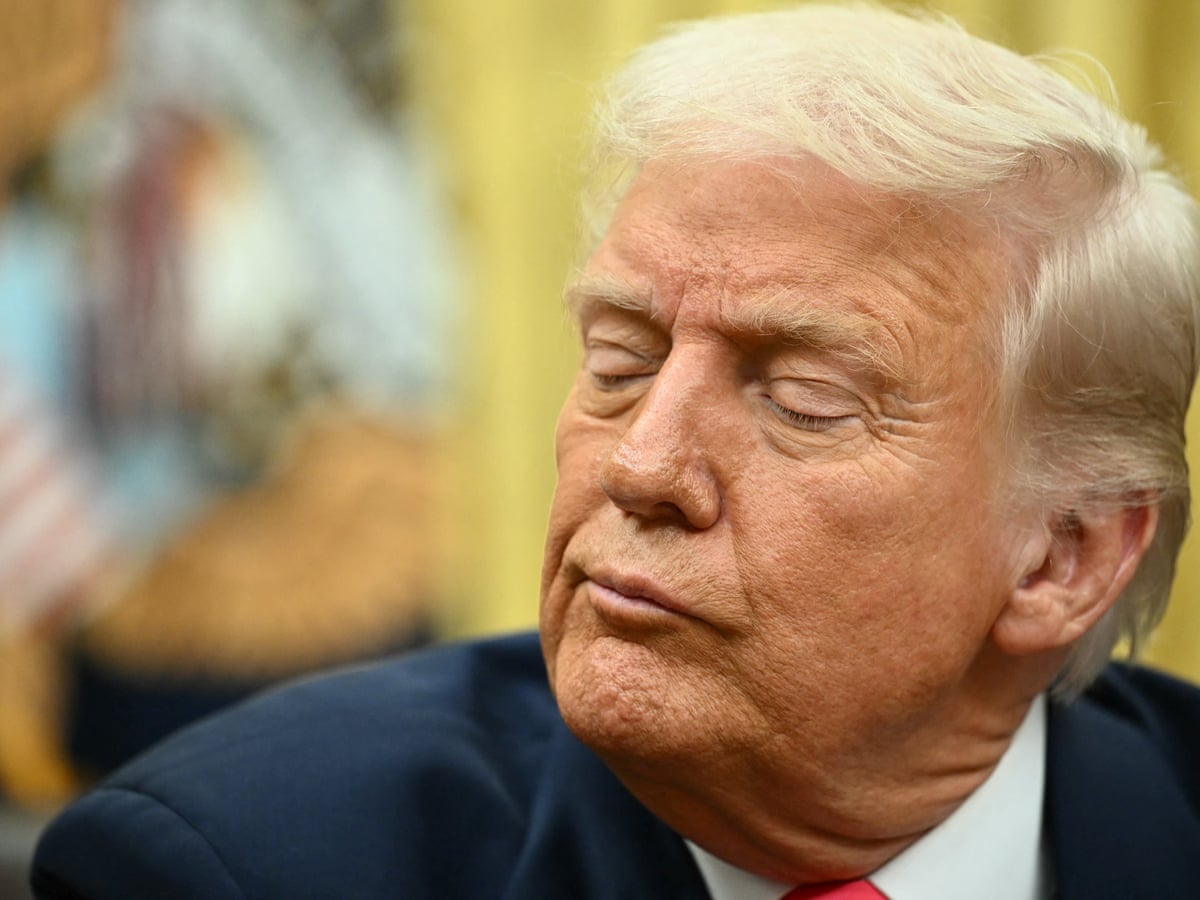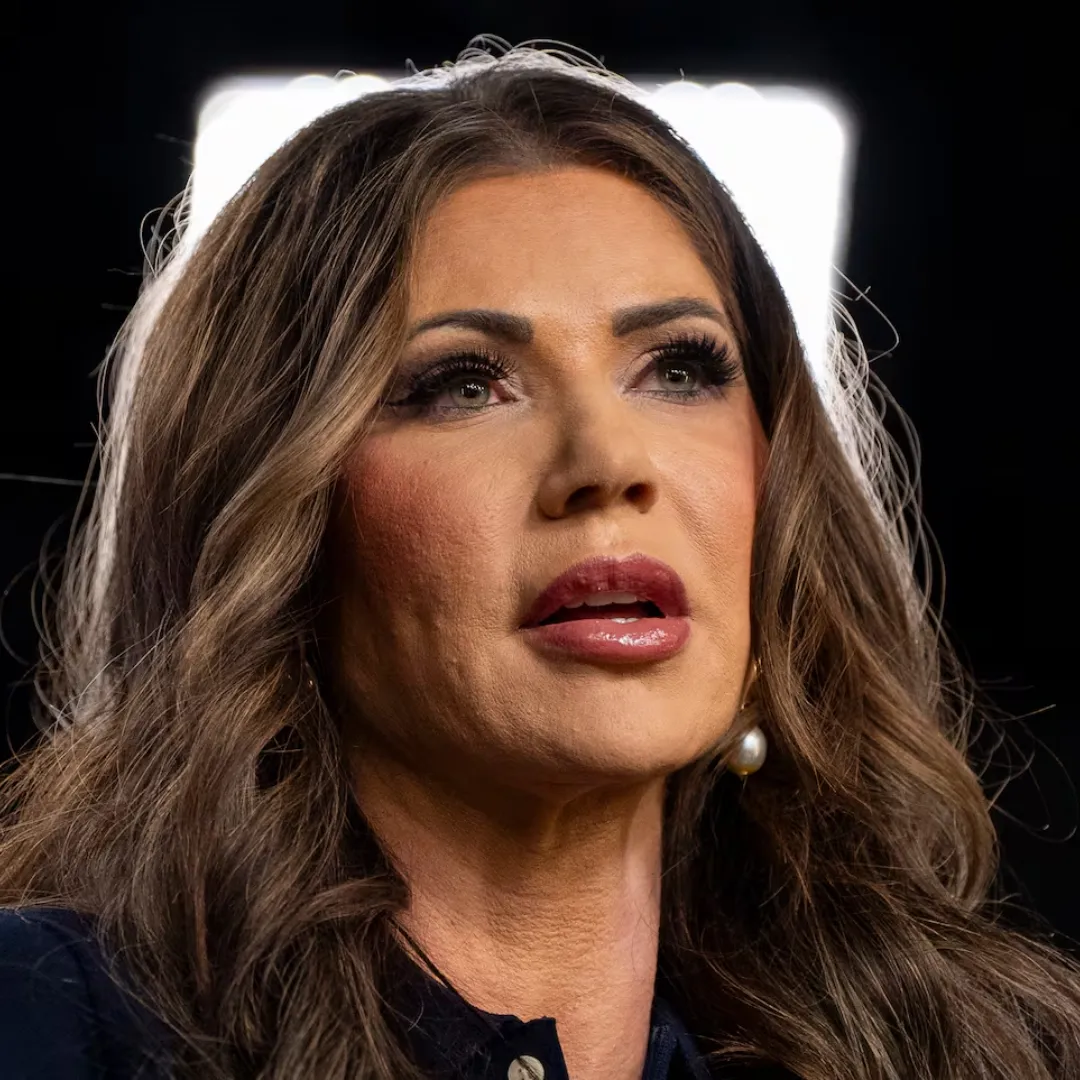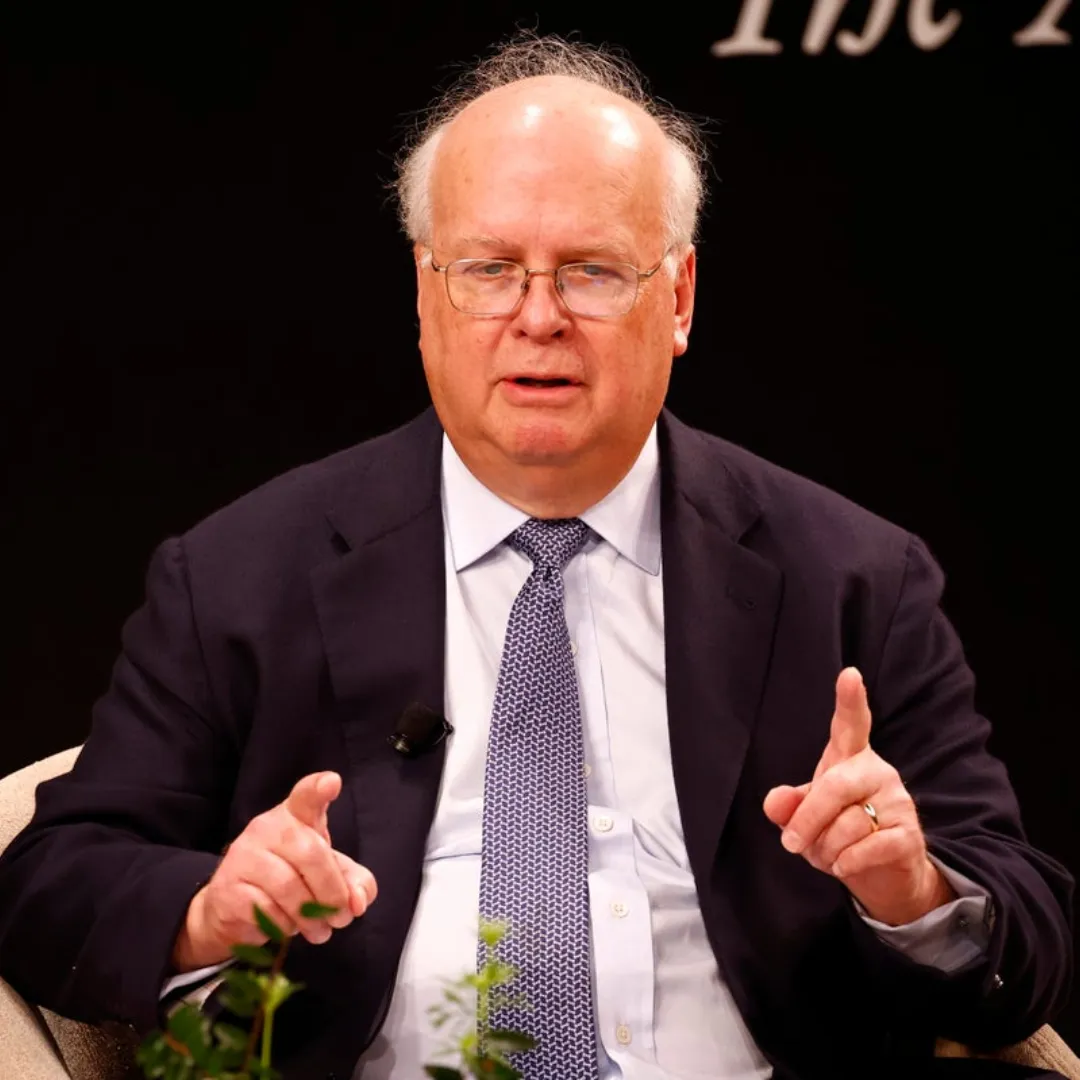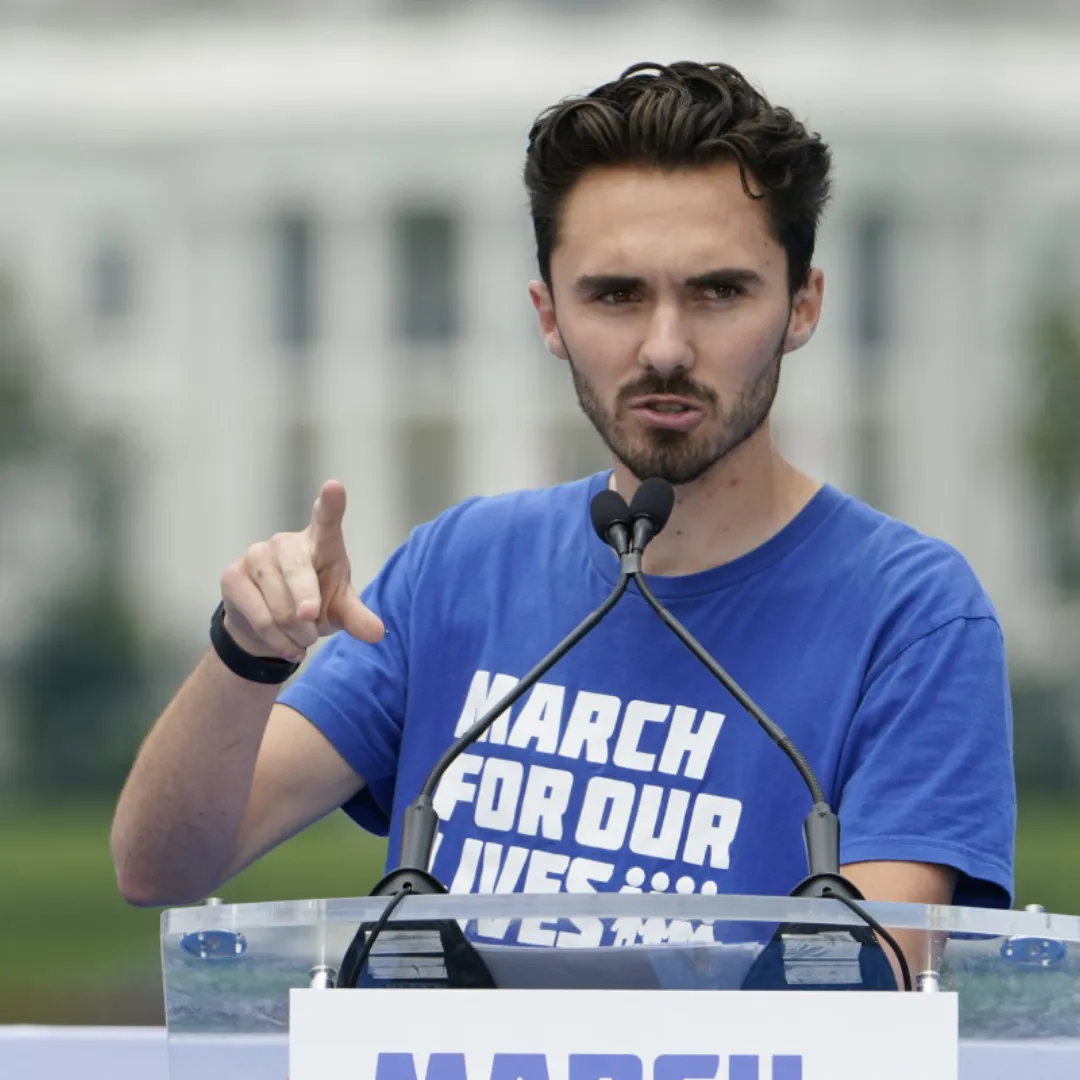
President Donald Trump addressed concerns over the state of the U.S. economy in an interview set to air Sunday, saying he does not believe the country is heading into a recession, though he acknowledged that “anything can happen.” Trump insisted that the United States is going through a period of transition and expressed confidence in the economy’s long-term outlook.
Speaking with NBC’s Kristen Welker during an interview for “Meet The Press,” Trump dismissed immediate fears that a downturn is inevitable. “Remember this. Look, yeah, it’s everything’s okay. What we are. I said, this is a transition period. I think we’re going to do fantastically,” Trump said during the exchange, recorded Friday.
When Welker asked directly whether he is concerned about the possibility of a recession, Trump responded with a simple “no.” Pressed again on whether it could happen, he replied, “Anything can happen, but I think we’re going to have the greatest economy in the history of our country.”
The comments come amid growing unease among economists and financial institutions following a first-quarter economic contraction. According to government data, the nation’s gross domestic product shrank by 0.3 percent in the first three months of 2025.
The contraction, though relatively modest, has raised red flags in financial markets already rattled by rising trade tensions and sweeping new tariffs introduced by the administration.
Wall Street has been divided in its forecasts. While some analysts have issued warnings about a potential recession, others remain more optimistic, citing resilient employment figures and strong consumer spending in some sectors.
Trump appeared frustrated by the focus on negative predictions during his interview with Welker. “Well, you know, you say, some people on Wall Street say… Well, I tell you something else. Some people on Wall Street say that we’re going to have the greatest economy in history. Why don’t you talk about them?” the president asked.
Though Trump maintained a positive tone in the interview, concerns have been growing about the broader impact of his trade policies, which have become more aggressive in recent months. The administration has introduced a sweeping series of tariffs affecting dozens of countries.
Initially aimed at key trading partners such as Mexico, Canada, and China, the measures have since been expanded, with Trump applying a blanket 10 percent import tax on a wide range of goods.
Earlier this year, Trump escalated the ongoing trade standoff with China by raising duties to 145 percent on all goods imported from the country, which remains the second-largest economy in the world.
The decision, while popular among certain domestic industries and parts of Trump’s political base, has sparked concern among businesses and international trade experts who fear it could disrupt global supply chains and increase costs for American consumers.
In a temporary concession, Trump suspended most of the sweeping tariffs for a 90-day period to allow for negotiations with select countries, but the flat 10 percent import tax has remained in place.
While the White House insists the move is intended to bring manufacturing back to the U.S., critics argue that it may instead spark retaliatory measures, increase inflation, and push the economy closer to a recession.
Throughout the interview, Trump deflected blame for recent market volatility, pinning the stock market’s performance on his predecessor. “This is Biden’s Stock Market, not Trump’s. I didn’t take over until January 20th,” Trump wrote earlier in the week on his Truth Social platform.
“Tariffs will soon start kicking in, and companies are starting to move into the USA in record numbers. Our Country will boom, but we have to get rid of the Biden ‘Overhang.’”
The term “Biden Overhang” has become a recurring phrase in Trump’s rhetoric, referring to what he calls the lingering effects of economic decisions made during the prior administration.

In Trump’s view, the economy has yet to fully shake off that influence. His latest budget proposal, tariff measures, and cost-cutting strategies are framed as efforts to restore what he calls “real American economic independence.”
Still, economists warn that despite the administration’s reassurances, trade instability, combined with ongoing global uncertainty, could tip the U.S. into a recession if left unchecked. Many financial institutions, including large banks and economic research firms, have issued forecasts showing a heightened risk of negative GDP growth in the coming quarters.
While employment numbers remain relatively stable and some sectors, such as energy and defense, are showing signs of growth, other areas have softened. Manufacturing indexes have shown a decline, and new home construction has slowed in response to shifting mortgage rates and reduced consumer confidence.
During the interview, Trump insisted that his policies are designed to build long-term strength rather than short-term comfort. He pointed to early signs of companies shifting supply chains and investment back to the United States as evidence that the tariff strategy is already working.
“We’re seeing manufacturing coming back. We’re seeing companies saying, ‘We want to be here. We want to hire Americans.’ That’s what this is about,” Trump said.
The administration has said its goal is to reconfigure the country’s economic relationships in a way that prioritizes American jobs and self-sufficiency. That view has shaped recent negotiations with foreign leaders, particularly in Asia and Europe, where discussions have centered on new bilateral trade terms and shared tariff adjustments.
Trump’s critics, however, argue that the White House is underestimating the ripple effects of its own policies. They say that without a stable trade environment and consistent regulatory approach, businesses will remain reluctant to invest long-term—even if they move operations back to the U.S. in the short term.
For now, Trump’s economic team maintains that the fundamentals are strong. They argue that consumer spending, job growth, and productivity numbers suggest a durable economy capable of absorbing short-term shocks.

In Washington, the debate over whether the U.S. is headed for a recession has already spilled into discussions over budget priorities, infrastructure funding, and the administration’s tax policy. Democrats have accused Trump of being overly reliant on tariffs to solve complex global issues, while Republicans remain largely supportive but divided on the long-term strategy.
As the political conversation heats up, Americans continue to watch the economy with caution. Gas prices, grocery bills, and housing costs remain central concerns for households across the country. Any further signs of economic contraction are likely to intensify the debate—and possibly influence upcoming policy shifts in both Congress and the White House.
For now, Trump says he is confident in the direction of the economy and dismissive of the critics. Whether the numbers ultimately support his optimism remains to be seen. “We’re going to do fantastically,” he said again, closing out the interview.




